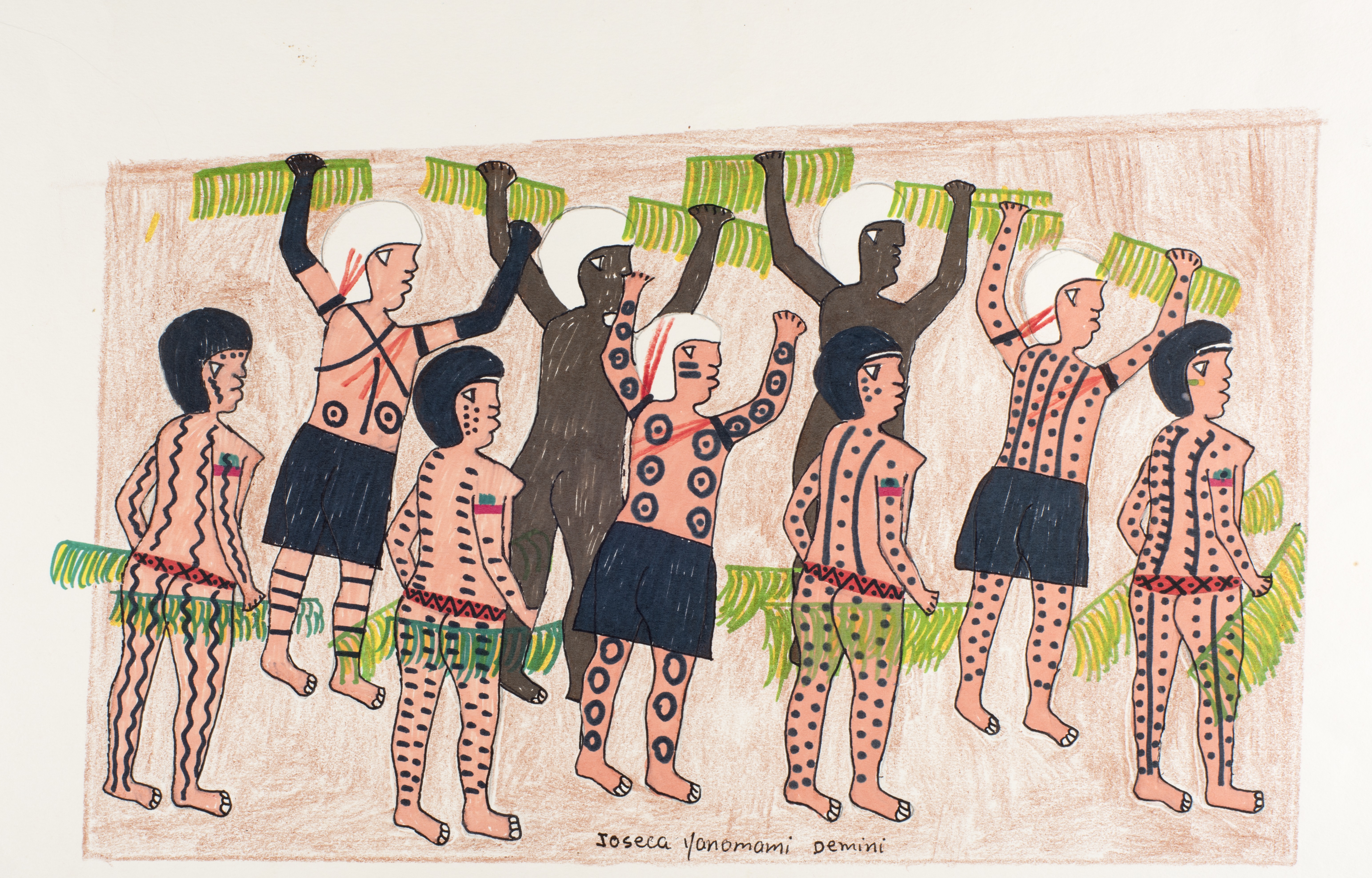Desenvolvimento, contestação e participação social na presidência brasileira do G20:
uma introdução
DOI:
https://doi.org/10.18227/2317-1448ted.v30i02.8258Palavras-chave:
Desenvolvimento, G20, Contestação, Participação SocialResumo
Este artigo tem como objetivo introduzir um projeto de pesquisa sobre a participação social durante a presidência brasileira do G20. Apresentamos o G20 como uma plataforma alternativa que, ao mesmo tempo que é contestatória da atual estrutura da arquitetura financeira internacional, é contestada pela sociedade civil e movimentos sociais de seus Estados-membro. Partindo de uma abordagem crítica ao desenvolvimento, adotamos a noção deste como uma matriz discursiva que é co-constitutiva de mudanças sociais. Assim, propomos a discussão em cima da seguinte questão: quem e como os discursos encampados pelo G20 convocam ao engajamento a partir de seu formato de operação? Para tanto, seguiremos em três tópicos: a história improvisada do G20; uma discussão sobre os conceitos de ‘desenvolvimento’ e ‘contestação’ e suas correlações analíticas; e os modelos de participação social mobilizados a partir do G20, com foco no Civil20, na Cúpula dos Povos e no ‘G20 Social’.
Referências
BRASIL. G20 Social. Presidência Brasileira do G20. 2024. Virtual. Disponível em: <https://www.g20.org/pt-br/g20-social>. Acesso em 01 maio, 2024.
COOPER, Andrew F. The G20 as an improvised crisis committee and/or a contested ‘steering committee’ for the world. International Affairs, v. 86, n. 3, p. 741-757, 2010.
EPSTEIN, Charlette. Norms. In: Bourdieu in International Relations. London, Routledge, 2013, pp. 165-178.
FERGUSON, James. Give a man a fish. Reflections on the New Politics of Distribution. Duke University Press, 2015.
FINNEMORE, Martha; SIKKINK, Kathryn. International Norm Dynamics and Political Change. International Organization 52, 4, Autumn, 1998, pp. 887–917.
FRANK, Andre Gunder. The development of underdevelopment. In: Imperialism. Routledge, 2023. p. 26-36.
FRASER, Nancy. Por trás do laboratório secreto de Marx. Po ruma concepção expandida do Capitalismo. Revista Direito e Práxis, v. 6, n. 10, p. 704-728, 2015.
GARCIA, Ana Saggioro; FERNÁNDEZ, Marta. Caderno para entender o G20. Rio de Janeiro: BRICS Policy Center, 2024.
GIDDENS, Anthony. Problemas centrais em teoria social: ação, estrutura e contradição na análise sociológica. Vozes, 2018.
GUDYNAS, Eduardo. Direitos da Natureza. Ética biocêntrica e políticas ambientais. São Paulo: Editora Elefante, 2019.
HARRISON, Faye Venetia. Global Apartheid, Environment Degradation and Women’s Activism for Sustainable Wellbeing; A Conceptual and Theoretical Overview. Urban Anthropology, v. 33, n. 1, p. 1-34, 2004.
HAYEK, Friedrich. O Caminho da Servidão. São Paulo: Instituto Ludwig von Mises Brasil, 2010.
KREUTZMANN, Hermann. From modernization theory towards the ‘clash of civilizations’: directions and paradigm shifts in Samuel Huntington's analysis and prognosis of global development1. GeoJournal, v. 46, p. 255-265, 1998.
LARIONOVA, Marina; SHELEPOV, Andrey. The G20 and BRICS: Engaging with international institutions for global governance. South African Journal of International Affairs, v. 26, n. 4, p. 643-661, 2019.
LISLE, Debbie. The art of International Relations. Em: Edkins, Jenny (Ed.). Routledge Handbook of Critical International Relations. Routledge, pp. 91 - 104, 2019.
MUÑOZ, Enara Echart; VILLARREAL, María del Carmen. Women’s struggles against extractivism in Latin America and the Caribbean. Contexto Internacional, v. 41, p. 303-325, 2019.
PARSONS, Talcot. The Social System. London & New York. 1991.
PEET, Richard; HARTWICK, Elaine. Theories of development: Contentions, arguments, alternatives. Guilford Publications, 2015.
PIETERSE, Jan Nederveen. Development Theory. Deconstructions/Reconstructions. London: SAGE Publications, 2010.
RADOMSKY, Guilherme Francisco Waterloo. Desenvolvimento, pós-estruturalismo e pós-desenvolvimento: a crítica da modernidade e a emergência de" modernidades" alternativas. Revista Brasileira de Ciências Sociais, v. 26, p. 149-162, 2011.
_____________. Pós-desenvolvimento, indicadores e culturas de auditoria: reflexões críticas sobre governança e desenvolvimento. Ciências Sociais Unisinos, v. 49, n. 2, p. 155-163, 2013.
RAMALHO, Antonio Jorge. A presidência brasileira do G20. Friedrich Ebert Shiftung, Novembro, 2023. Disponível em: <https://library.fes.de/pdf-files/bueros/brasilien/20757-20231130.pdf>. Acesso em: jan. 2024.
RAMALINGAM, Ben. Aid on the edge of chaos: Rethinking international cooperation in a complex world. Oxford University Press, USA, 2013.
RICÚPERO, Rubens. A diplomacia na construção do Brasil: 1750-2016. Rio de Janeiro: Versal Editores, 2017.
RIST, Gilbert. The History of Development. From Western Origins to Global Faith. London: Zed Books, 2008.
ROSTOW, Walt. The Five Stages of Growth. New York: Cambridge University Press, 1990.
SCHRÖDER, Peter. A Antropologia do desenvolvimento: é possível falar de uma subdisciplina verdadeira?. Revista de Antropologia, v. 40, p. 83-100, 1997.
SILVA, Lays Helena. Ambiente e justiça: sobre a utilidade do conceito de racismo ambiental no contexto brasileiro. E-cadernos CES [Online], nº 17, 2012. Disponível em: http://journals.openedition.org/eces/1123. Acesso em 05 de Março de 2024.
WIENER, Antje. Contestation and Constitution of Norms in Global International Relations. Cambridge: Cambridge University Press, 2018.
ZIAI, Aram. Exploring Post-development. Theory and practice, problems and perspectives. New York: Routledge, 2007.
ZURN, Michael. A Theory of Global Governance: Authority, Legitimacy, and Contestation. Oxford: Oxford University Press, 2018.
Downloads
Publicado
Como Citar
Edição
Seção
Licença
Copyright (c) 2024 Textos e Debates

Este trabalho está licenciado sob uma licença Creative Commons Attribution 4.0 International License.
Os direitos autorais para os artigos publicados são do autor, com direitos do periódico sobre a primeira publicação. Os autores somente poderão utilizar os mesmos trabalhos em outras publicações indicando claramente este periódico como o meio da publicação original. Permite-se o uso gratuito dos artigos em aplicações educacionais e científicas, desde que citada a fonte.

Este obra está licenciado com uma Licença Creative Commons Atribuição 4.0 Internacional.





